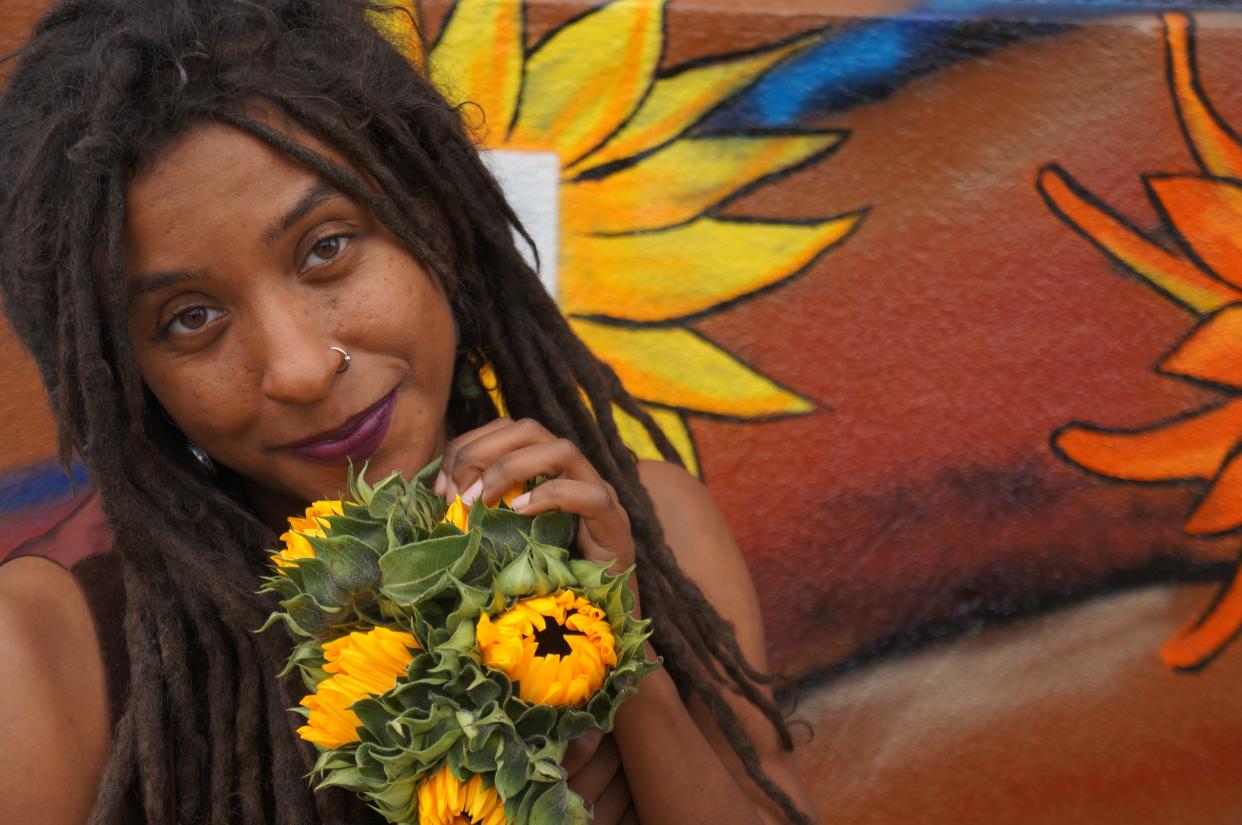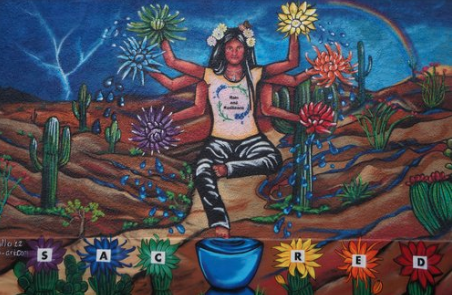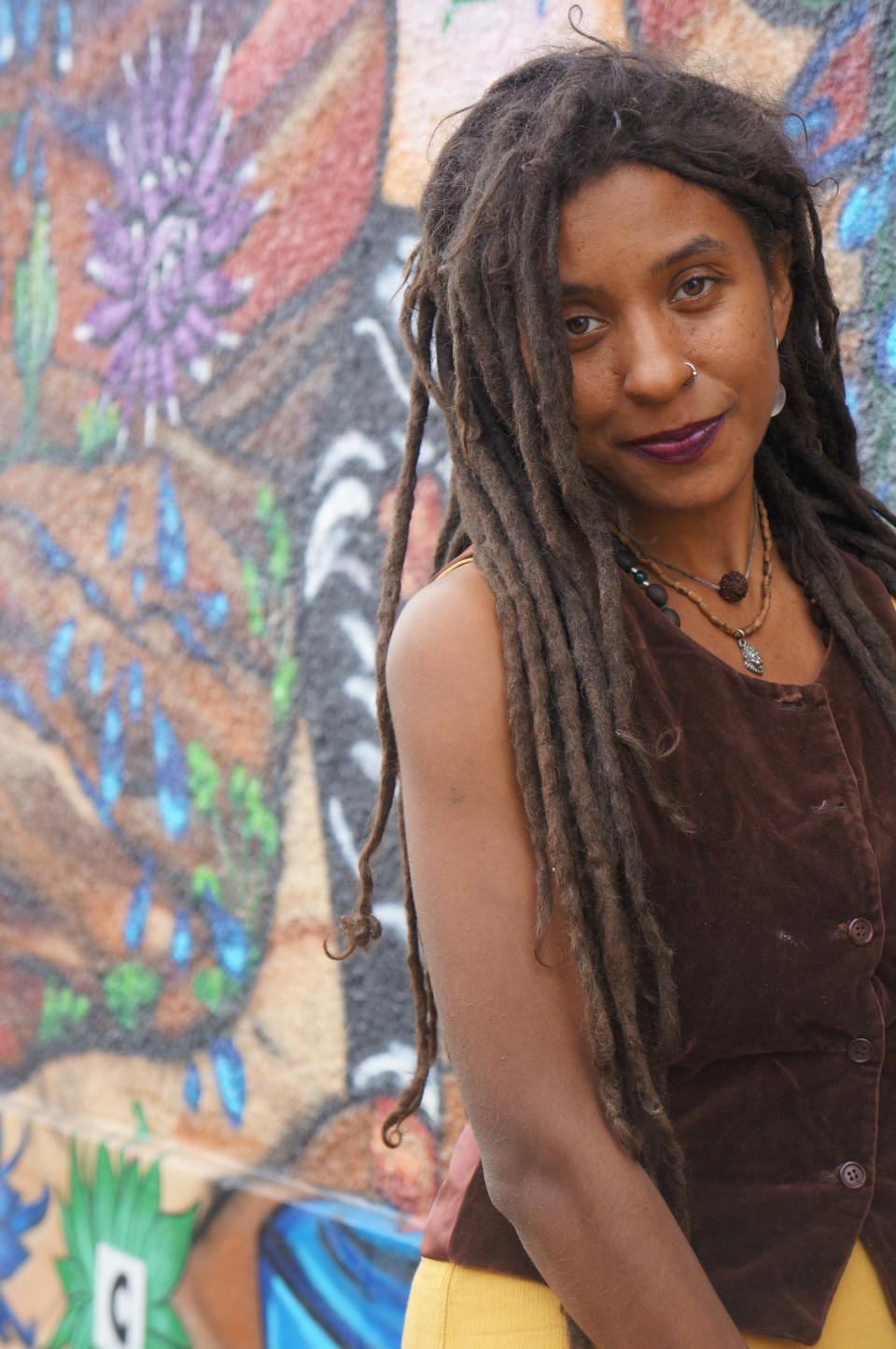How a UA grad used her traumatic experiences to help others, make art

From sleeping on the roofs of Tucson's campus to offering a scholarship to University of Arizona students — Renee Kargleder's life has come full circle.
After going through a traumatic experience during her college years, Kargleder, 32, used that as a driving force to support others going through similar experiences.
"When I was 20 years old, I was sexually assaulted. It was my first sexual experience, and it was really devastating," Kargleder said. "In 2017, I then founded the Resilience Project, through which we offer scholarships to those who had experienced similar nightmares."
The Resilience Project offers scholarships to sexual assault survivors. Unlike other scholarship programs, however, students aren't chosen based on GPA requirements or an academic essay. Instead, they are asked to submit a piece of art that talks about their own experience.
Some write a poem, others send photos, dancing videos, sculptures or a plethora of different types of art — all meant to help survivors on their healing journey.

Finding purpose in Tucson
Kargleder grew up in Saint Paul, Minnesota, surrounded by playmates — her three sisters. She spent her childhood climbing trees next to the Mississippi River.
"I feel like I was lucky and I'm grateful for what my family gave me," Kargleder said.
Two of her sisters remain in the Twin Cities, while the third married a man in Saudi Arabia. Kargleder decided to move away from her hometown.
"As I went through my own process, I ended up needing to leave the world where I grew up," Kargleder said. "I literally put my finger on a map and I ended up in Tucson. I didn't know anything, anybody, I had a time when I was homeless, but I was able to finish my undergrad and go through my Master's in education here."
Kargleder studied biology and government and she's particularly interested in ecology and public health. Her education started off at Lawrence University in Wisconsin, before moving to Tucson for her senior year where she obtained her bachelor's in biology from the University of Arizona.
"The university for me was an amazing mirror," Kargleder said. "Music, singing, painting, all were key components of my healing process. As I was moving through, I got to a point where I could give back, I had a little more money. I knew it was small, but I was like 'let me try to start something for people like me, who had this traumatic experience and are using art as a healing element.'"
It was important for her to incorporate that into The Resilience Project. The idea came from a scholarship she got when she first started college.

Kargleder reached out to the American Association of University Women when she was 26, a few years after graduating. They awarded her a scholarship when she was 18 and, when she decided to help other people, she realized that giving back to them would allow her to come full circle.
"I said, 'I have $500, I don't know what that could do, but if it can help anybody, I'm here,'" Kargleder recalled.
The scholarship is still new, but well underway. Three students have been through the whole process and graduated, while about 25-30 apply every year.
Every awarded scholarship is worth $1,000. The submissions are treated with confidentiality and selected by a board.
"The project is literally blooming in front of my eyes," Kargleder said. "It has morphed from a scholarship to a dynamic research cooperative consisting of art therapy, trauma support, music therapy, mural creation, casework and resource mapping."
The project is now six years old and Kargleder has no intention of quitting anytime soon.
"In the next 5 to 10 years I see myself sticking with this organization, cultivate it and watch it bloom," she said. "We have the possibility to take the drama people have experienced and transform it into something better. There's nothing else I want to do more in my future."
Aside from running the Resilience Project, Kargleder teaches earth science, the environment and policies about how to take care of our planet at Arizona Virtual Academy, an online public school.
'This is about the community': Tucson-based nonprofit tattoo studio provides art therapy for kids
More than just a scholarship
The winners not only receives a scholarship, but other artists take their pieces of art and transform them into a mural. Three murals have been completed as of now and they all can be found around downtown Tucson.
Kargleder strongly believes in art as a form of therapy. She also created "The Roadmap for Healing," a system that provides confidential and nonconfidential resources to survivors.
"In my personal story, I didn't report to the police due to my own past drama with the law enforcement, but I still needed medical care, psychological care, after my ordeal," Kargleder said. "I didn't want to reveal my status at that moment. The roadmap for healing helps with that, as it provides a place where people can share as much as they want and find help for it."
Along with offering individual financial and therapeutic support, the Resilience Project also aims to raise questions about accountability, access and data made available at UA, making noise where there are disconnects between the university and the way it helps survivors.
All the funds for the scholarship are gained through Kargleder's efforts and her own pocketbook. Finding donors and grantees hasn't been easy so far, so every year she saves up, puts a bit of money to the side and gifts it to the chosen applicant.
"The goal is to keep these services for free," Christine Barry, who has known Kargleder for over eight years and works with her on the Resilience Project, said. "Local foundations, state and federal grants — we are looking for anything. But the main things we need right now, it's just donations."
The Resilience Project recently launched the "Trees for Trauma" campaign. Through garden therapy, they plant trees as part of the healing process.
"I think it's a highly individual thing," Kargleder said. "When you go through such pain, it becomes a combination between inner and outer process. For me, the inner was so deep. I was going through states where I felt powerless. Like, I literally could not sing for three years, my voice was not coming out. So, it's about developing inner strength and then finding a community that can help you with it. It was the end of the world for me, but the universe saw it as the beginning of something bigger I could not see when I was going through it."
Finding something bigger, finding a voice, is part of what makes Kargleder's work important.
"I don't know if it's because of her experience, but Renee can truly feel people's emotions," Barry said. "She always tries to give a voice to those who haven't found their voice yet."
This article originally appeared on Arizona Republic: Resilience Project funds scholarships, makes art in Tucson

